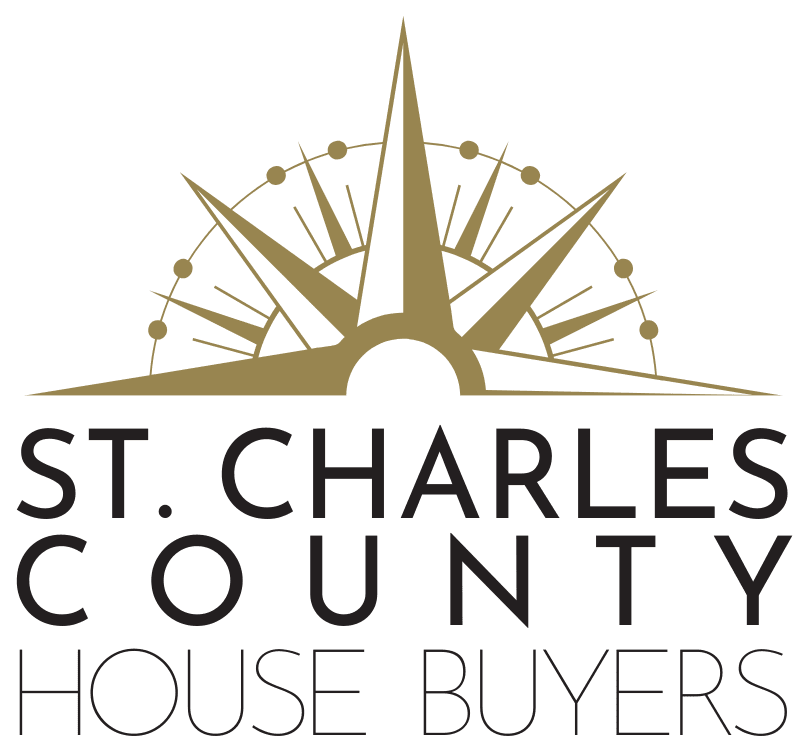The Ultimate Overview to Financing Options for a Realty Buyer in 2025
As you check out the realty market in 2025, recognizing your funding options is crucial. With a selection of selections-- from standard mortgages to innovative options like crowdfunding-- it's important to find what fits your demands best. Each alternative features its own set of advantages and considerations that can greatly impact your financial investment. So, what should you prioritize when assessing these alternatives, and just how can they affect your journey to homeownership?
Comprehending Conventional Home Mortgages
When it concerns getting real estate, numerous purchasers turn to traditional home loans as their go-to financing alternative. These fixed-rate financings provide stability, making it much easier for you to budget plan your month-to-month payments over time. Generally, you'll secure a mortgage for 15 or three decades, enabling you to spread out the expense of your home acquisition.
To qualify, lenders commonly require excellent credit rating, a steady revenue, and a sensible debt-to-income ratio. You'll also require to give a down payment, which can differ based on the lending kind and your economic circumstance.
Understanding the conditions of your home loan is crucial. Watch out for rates of interest, fees, and early repayment penalties that might affect your economic future. By thoroughly investigating your alternatives and contrasting offers from numerous loan providers, you can ensure you're making the very best option for your circumstance.

Exploring Adjustable-Rate Home Loans
Adjustable-rate home loans (ARMs) can be an appealing choice for lots of purchasers. You'll intend to comprehend exactly how they function, including their advantages and disadvantages, as well as exactly how rate adjustments impact your settlements. Checking out these information can help you determine if an ARM fits your monetary objectives.
What Are ARMs?

ARMs, or adjustable-rate mortgages, provide an adaptable financing option that can attract buyers trying to find lower first repayments. With an ARM, your rate of interest price is usually reduced at the beginning compared to fixed-rate home mortgages. This introductory duration can last anywhere from a few months to numerous years, relying on the finance terms. Hereafter preliminary phase, the rate adjusts occasionally based on market conditions, which can lead to varying regular monthly payments. It's critical to recognize exactly how these adjustments work, as they can greatly influence your spending plan in time. Several ARMs featured caps to limit exactly how much your price can boost, giving some predictability. On the whole, ARMs can be a strategic selection for sure customers.
Advantages And Disadvantages
Choosing an adjustable-rate mortgage (ARM) can offer both benefits and disadvantages that you should consider thoroughly. On the bonus side, ARMs generally begin with lower preliminary rate of interest prices compared to fixed-rate mortgages, which can mean reduced month-to-month payments initially. This can aid you afford a much more costly home or free up cash for other investments. The downside is the possibility for price boosts after the first period, which can lead to greater payments down the line. If rate of interest increase significantly, you might discover on your own paying far more than you would certainly expected. Inevitably, it's necessary to evaluate your financial circumstance and danger resistance when choosing if an ARM fits your needs.
Rate Change Mechanics
When taking into consideration a variable-rate mortgage, recognizing how price modifications work is important. Normally, your interest rate will begin less than fixed-rate financings, yet it'll alter after an initial period, usually 5, 7, or 10 years. The modifications depend upon an index, like the LIBOR or the Treasury rate, plus a margin set by your loan provider.
Understanding the caps on just how much your price can raise at each modification and over the life of the loan is significant. This aids you prepare for possible repayment adjustments.
The Rise of Alternative Funding Solutions
As traditional funding approaches end up being less available, many purchasers are turning to alternative funding services to secure their desire homes. Alternatives like exclusive money loaning, crowdfunding, and lease-to-own contracts are obtaining traction. These services commonly bypass the strict needs of conventional banks, making them attractive for buyers who may not qualify for typical loans.
Private money lenders can provide quicker authorizations and more flexible terms, while crowdfunding enables several investors to pool sources for a single residential property. Lease-to-own plans supply a pathway for buyers to secure a home while constructing equity in time.
Additionally, vendor funding is ending up being more prominent; this permits you to work out terms straight with the homeowner, potentially staying clear of some of the obstacles connected with banks. With a range of innovative financing alternatives available, you can discover a solution that fits your requirements and assists you attain homeownership without the typical hurdles.
Government-Backed Loans: What You Need to Know
When you're exploring funding options, government-backed lendings can be an excellent option. These car loans can be found in various types, each with particular advantages and requirements, so it's crucial to understand what's offered. Understanding exactly how to receive help can help you take advantage of these options.
Types of Government Finances
If you're thinking about purchasing a home, comprehending the different kinds of government-backed loans can be important to your funding alternatives. The most typical kinds consist of FHA, VA, and USDA fundings. FHA car loans are fantastic for first-time purchasers, offering reduced deposits and adaptable credit history requirements. VA fundings, offered to experts and active-duty military, provide no deposit alternatives and competitive rates of interest. USDA car loans cater to country buyers, promoting budget friendly housing without down payment in eligible areas. Each of these financings has special benefits and demands, so it's vital to study which one straightens best with your monetary situation and objectives. By discovering these choices, you can make a much more educated decision on your home purchase.
Receiving Help
Just how do you Get More Information understand if you get government-backed loans? First, examine your credit report rating; most programs need a minimal score, usually around 580. Next off, assess your revenue and employment background-- constant earnings is crucial. You'll also require to give documentation like tax returns and pay stubs.
Debt-to-income ratio (DTI) plays a significant role too; goal for a DTI of 43% or lower. If you're a novice buyer, specific programs offer additional adaptability.
Lastly, be aware of the home requirements; the home needs to meet particular criteria. By understanding these requirements, you can better position on your own for government-backed help, making homeownership a lot more possible. Constantly get in touch with a lender to clarify your qualification!
The Effect of Rate Of Interest Rates on Funding Options
As passion prices rise and fall, they can greatly influence your financing selections in property. Greater rates generally indicate higher monthly payments on loans, which might push you to review more budget-friendly residential or commercial properties or different financing options (St Charles County House Buyers). It's vital to watch on existing prices, as also a minor boost can affect your spending plan substantially

You'll also intend to consider your credit history and financial stability, as these components can impact the rates you're used. Ultimately, knowing interest price trends will aid you make informed choices, ensuring you safeguard the most effective funding option for your realty investment.
Imaginative Financing Strategies for Financiers
While standard financing methods like mortgages are usual, several investors discover success by exploring imaginative funding methods. One effective strategy is vendor funding, where the vendor works as the loan provider, permitting you to negotiate terms straight. This can streamline the procedure and commonly results in reduced closing expenses.
An additional option is lease choices, enabling you to rent out a home with the right to acquire it later. This approach provides you time to enhance your credit score or conserve for a down repayment while safeguarding the home.
Partnerships can also be a game-changer. Partnering with other investors enables you to merge resources and share risks.
You may additionally think about making use of tough cash loans for quick financing, particularly in open markets. These fundings are based on the building's worth instead of your credit history score.
Tips for Choosing the Right Financing Alternative
Picking the appropriate funding option can significantly affect your property investment success, so it's necessary to evaluate your economic circumstance and objectives thoroughly. Beginning by establishing how much official source you can manage, considering your revenue, savings, and other expenses. Next off, evaluate your credit history; a higher score can safeguard better passion rates.
Check out various financing options, like standard lendings, FHA lendings, or perhaps imaginative strategies like seller funding. Each features distinct terms and benefits customized to different demands. Don't forget to variable in closing expenses, monthly repayments, and prospective investment returns.
Seek advice from with a home mortgage broker or financial consultant to get customized guidance. They can assist you understand the nuances of each option and locate the very best fit for you. Lastly, do not rush-- take your time to weigh the advantages and disadvantages before choosing. Your future self will thanks!
Frequently Asked Concerns
What Are the Minimum Credit History Demands for Funding in 2025?
In 2025, minimal credit rating needs can differ by lender and funding additional reading kind. Generally, you'll require a rating of a minimum of 620 for standard financings, while FHA finances might approve ratings as low as 500.
Exactly How Can I Improve My Credit History Score Before Getting a Finance?
To enhance your credit rating before looking for a financing, settle exceptional financial obligations, keep credit utilization reduced, pay on time, and inspect your credit history report for errors you can challenge.
Are There Specific Financing Choices for First-Time Homebuyers?
Yes, there specify funding choices for novice property buyers. You can explore FHA loans, USDA finances, and state support programs. These alternatives typically require lower down settlements and have much more adaptable credit report needs, making homeownership available.
What Papers Are Needed for a Mortgage Application?
When you get a mortgage, you'll need files like proof of income, income tax return, bank declarations, and recognition. Gathering these ahead of time can simplify your application and aid you protect financing quicker.
Can I Re-finance My Car Loan if Rate Of Interest Fees Drop?
